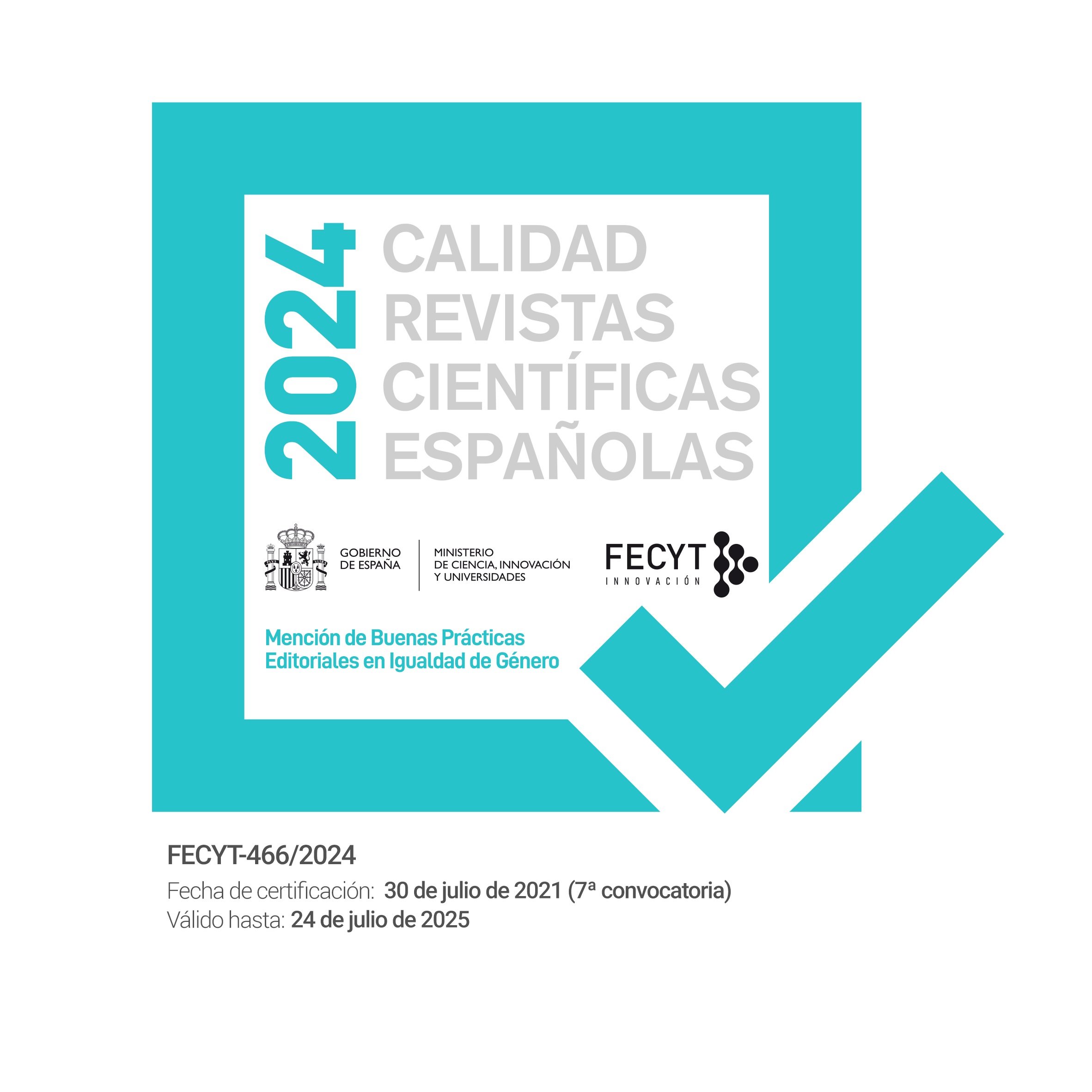Ethical oversight policy
The Revista Educación artística: revista de investigación (EARI) is committed to meeting and maintaining standards of ethical behaviour at all stages of the publication process. Our code of ethics is based on the code of ethics of Sobre México Journal and the standards and guidelines of the Committee on Publication Ethics (COPE).
Duties and responsibilities of the Editor, the Board and the Editorial Board
- Ensure the confidentiality of the authors' data in the evaluation process.
- Ensure compliance with the double-blind process in the evaluation process.
- Define clear and objective criteria for the evaluation and acceptance of articles.
- Objectively evaluate the content of the articles received and their relationship with the objectives and scope of the journal, taking into account editorial policies.
- Avoid discriminatory practices based on gender, affiliation, academic degrees, sexual orientation, religious beliefs, ethnic origin, nationality or any other aspect unrelated to the quality of the document.
- Ensure that there is no conflict of interest in relation to the articles under evaluation or their authors.
- Use the content of the articles exclusively for the purpose for which they were submitted to the journal.
- Establish and ensure compliance with the deadlines for responding to authors.
- Review suspected incidents of plagiarism and resolve any conflicts of interest.
Duties and responsibilities of authors:
- To ensure the originality of the articles submitted for evaluation, and that these have not been published elsewhere and are not being reviewed by other journals.
- Ensure that all data submitted are truthful and obtained in a technically correct manner.
- Do not plagiarise in whole or in part from other published works, including self-plagiarism.
- Ensure that the authorship of the article corresponds to the persons who sign it.
- Declare any relationship or association that may involve a conflict of interest with respect to the article submitted for evaluation.
- Clearly indicate the sources of information used.
- Where appropriate, obtain permissions for the use of databases or for the reproduction of material from other publications.
- Correctly cite the original sources of material being reproduced.
- Respect the deadlines set by the Editorial Board for the submission of revisions and corrections.
- Where appropriate, ensure that ethical criteria have been followed in the research, e.g. informed consent for the collection of sensitive data or participation in experiments.
Duties, responsibilities of Reviewers
- Review the articles received objectively, based solely on quality criteria.
Clearly state the rationale for the evaluation. - Provide sufficient and accurate personal and professional information to allow the Editorial Committee to appropriately assign the evaluation of articles that are in accordance with their expertise.
- Only accept the evaluation of articles about which they have knowledge and experience.
- Respect the deadlines established by the Editorial Committee for the submission of their opinion.
- Not accept articles in which there may be a conflict of interest that limits their objectivity (for example, being an interested party in the research presented in the article).
- Maintain the confidentiality of the information and data of the articles evaluated.
Respond to the request for evaluation made by the journal, even to decline the invitation. - Not to transfer the responsibility for the evaluation to a third party without the consent of the Editor.
- To be impartial in the face of article considerations related to nationality, religious, political or other beliefs.
- Not to request modifications or corrections that imply carrying out research different from that submitted.
- Notify the Editor of any suspected irregularities with respect to the research.
- Provide objective and constructive feedback to the authors to help improve the article.







